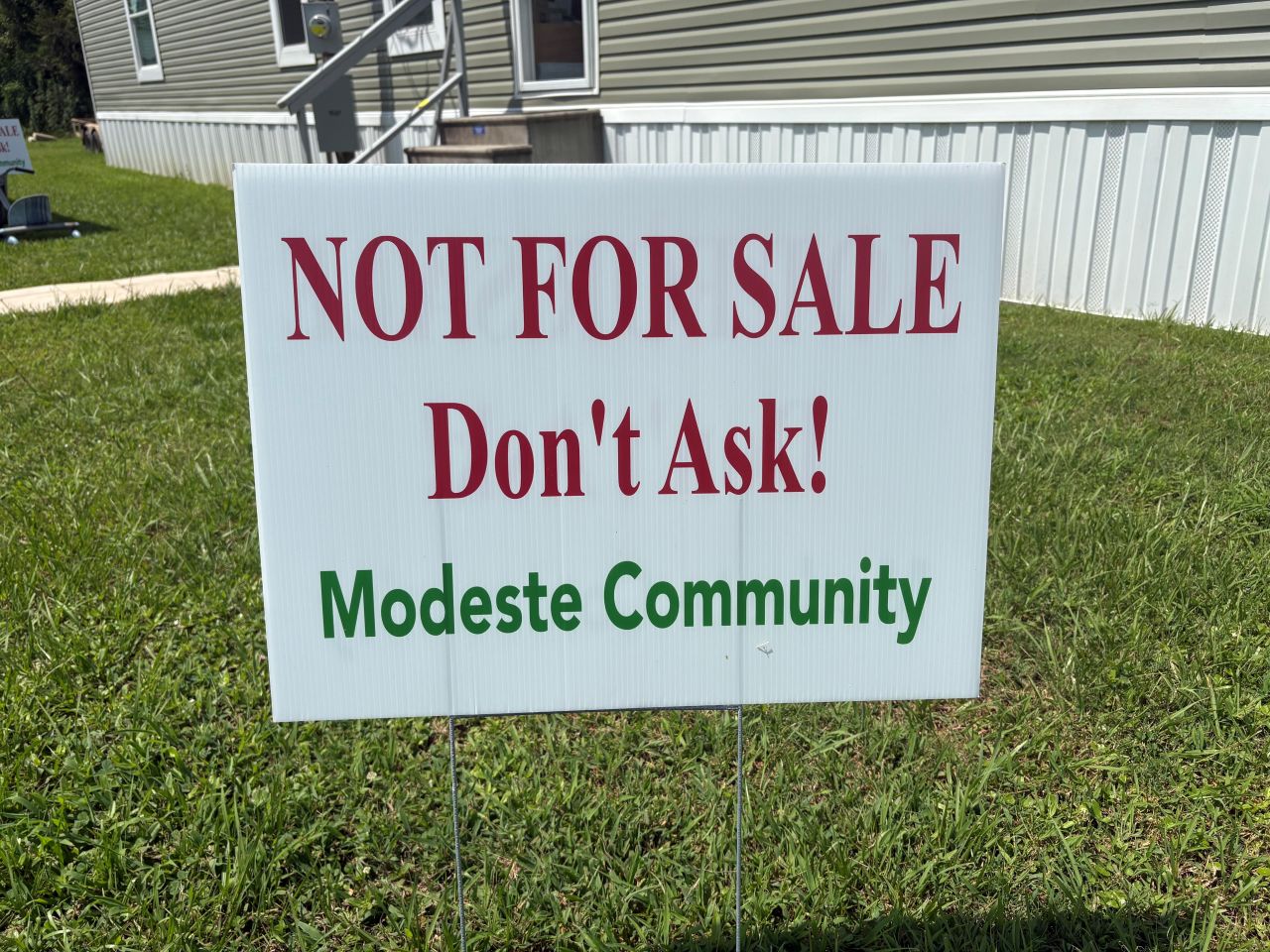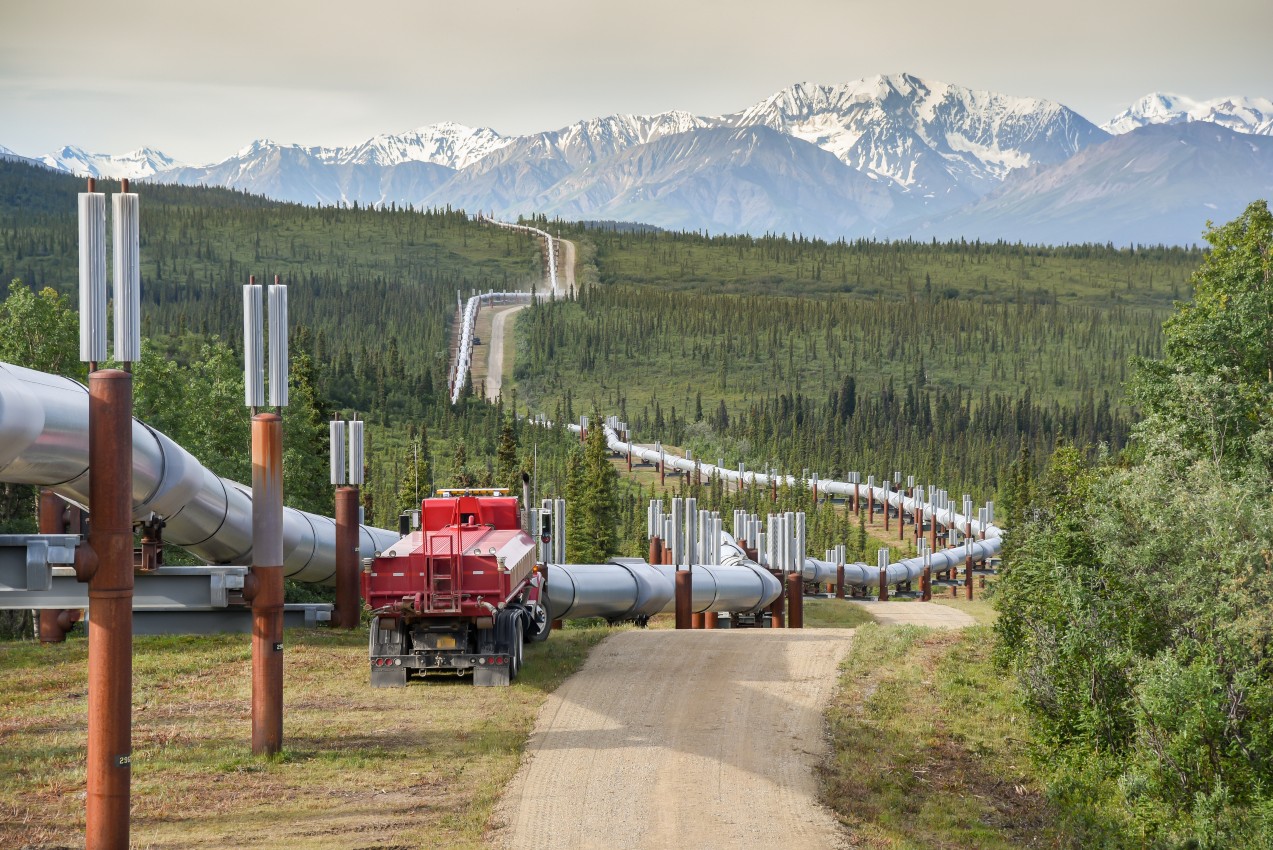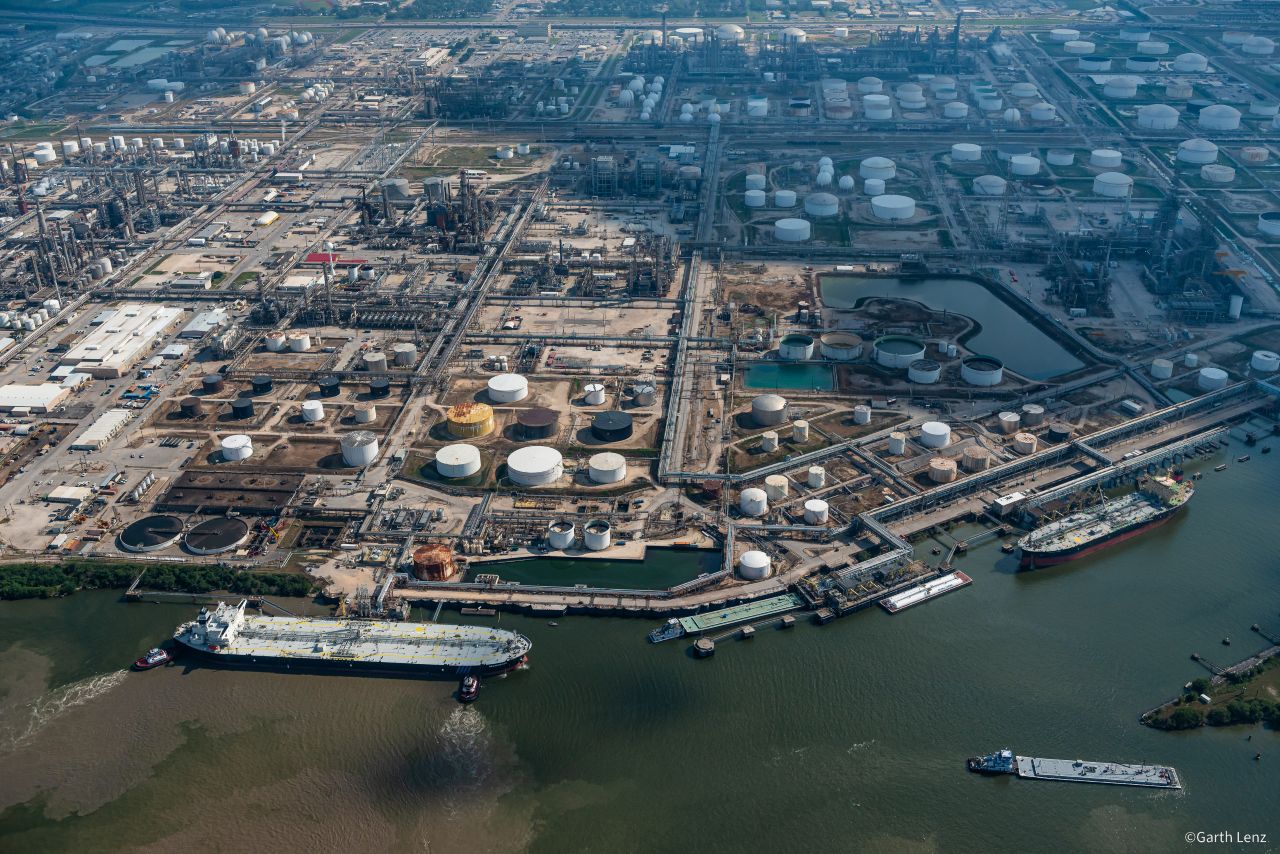Louisiana officials want to displace a majority Black community to make room for industrial 'MegaPark'

Twila Collins has lived in the small community of Modeste, Louisiana, for 55 years. From her home, she can see the stacks of the petrochemical plants along the east bank of the Mississippi River in Ascension Parish, south of Baton Rouge.
A cancer survivor who lost her son at age nine to an asthma attack and her mother to cancer, Collins is now speaking out against a plan by state and local officials to replace Modeste’s residents with massive industrial plants. Officials are offering billions in tax breaks and free land to attract a “MegaPark” industrial complex with a steel plant and at least two facilities that turn natural gas into ammonia.
Last month, the Ascension Parish government issued a request for qualifications for companies to develop a plan to relocate residents and buy out their properties on the west bank of the Mississippi River, in an area that is currently made up of homes and farm fields.
“This plan will be voluntary and designed to provide a transparent, community-centered process for relocation, while supporting long-term revitalization efforts,” the parish’s press release states.
However, Collins is among the residents pushing back, saying that many in the majority Black community regard the area as their home and don’t even know where they would go if they accepted the buyouts.
“You want to add more pollution here? That’s not going to help us,” Collins said. “What will we gain from y’all dealing these plants and kicking us out of the only place we know as home?”
The Ascension Parish council, along with Louisiana Gov. Jeff Landry and other state economic development leaders, envision Modeste not as a tight-knit residential community but as the “RiverPlex Megapark,” a 17,000-acre industrial site home to multiple industries. If all goes according to plan, dozens of residents would leave to make room for a steel plant by Korean automaker Hyundai. State officials are offering Hyundai $2.4 billion in incentives, including a $1.2 billion in local property and sales tax breaks. In exchange, state officials say Hyundai would have to employ 1,452 people per year over a 20-year period and spend $5.3 billion building the steel mill to qualify for all $2.4 billion.
The package includes an offer to spend $100 million in state taxpayer funds buying land within the proposed RiverPlex MegaPark. Hyundai would be able to use the land for free, and neither the company or the state would pay taxes on the parcels.
The site could also host an ammonia manufacturing plant called the Ascension Clean Energy Facility, planned by a subsidiary of ExxonMobil and shipping companies Hafnia and Mitsui O.S.K. Lines. The site could also host fertilizer company CF Industries’ Blue Point ammonia complex, which would also make ammonia from natural gas.
A map of the site shows that officials have their eyes on several large properties mainly owned by private landowners, with fields of sugarcane. It includes land formerly part of the Germania and Mulberry Grove plantations that were later cultivated by sharecroppers.
Collins is one of the residents who traces her lineage back to enslaved people who worked on the plantations.
“My ancestors worked hard for what they left here for us to be able to enjoy, not for us to just give it away or for somebody to come here and take it from us,” Collins said.

Ashley Gaignard, who lives in nearby Donaldsonville and founded environmental justice group Rural Roots Louisiana, said the large landowners who no longer live in Modeste are “thrilled” about the prospect of making money selling their land to become the RiverPlex MegaPark.
“But the residents that live there, they’re afraid,” Gaignard said. “They think there’s nothing they can do.”
The park would also represent the expansion of the industrial footprint in Ascension Parish across the river from Geismar, an area already home to about a dozen massive refineries and petrochemical facilities.
Because of these and other facilities in the heavily industrialized Mississippi River corridor known as Cancer Alley, the area where officials want to build the RiverPlex MegaPark already has more toxic air pollution than over 95 percent of the U.S., according to EPA data. The parish’s cancer rate is also higher than the state and national average.
Like Collins, Gaignard is a cancer survivor whose mother also has cancer. Gaignard also has a child with asthma.
“We all see it,” Gaignard said. “There’s nobody you can talk to in this community who don’t have a close family member that’s died from cancer.”
Economic development leaders in Ascension Parish tout the area’s location – close to the Mississippi River and an interstate highway, along with a massive pipeline network feeding oil, gas, and chemicals used as raw ingredients by industry.
In their offer to Hyundai, state officials also advertised the potential for a growing hydrogen fuel industry in the area. The fuel has been considered as a potential alternative to oil and natural gas because it emits no climate-warming greenhouse gas emissions when burned. However, most hydrogen is currently made from natural gas and so its production releases greenhouse gases and other health-damaging pollution.
Most hydrogen is used to manufacture ammonia, which is used as a fertilizer and an industrial refrigerant. Ascension Parish is already at the heart of Louisiana’s boom in proposed hydrogen and ammonia projects, with CF Industries operating the world’s largest ammonia production facility in Donaldsonville.
Gaignard and Collins both said they know few local people of color who work in these plants and that the roads fill with employees commuting to work from more distant places. That impression tracks with a recent study by Tulane University and University of Massachusetts researchers that found that people of color are vastly underrepresented in high-paying petrochemical and refining jobs in Louisiana and across the U.S.
Gaignard thinks local officials focus on giving massive tax breaks to industry because they do not know “how to develop this community themselves.”
“They’re all excited about a reward that they won’t reap the harvest from,” Gaignard said.
Lead photo: Twila Collins outside her home in Modeste. Photo by Carlos Silva for the Louisiana Bucket Brigade.















